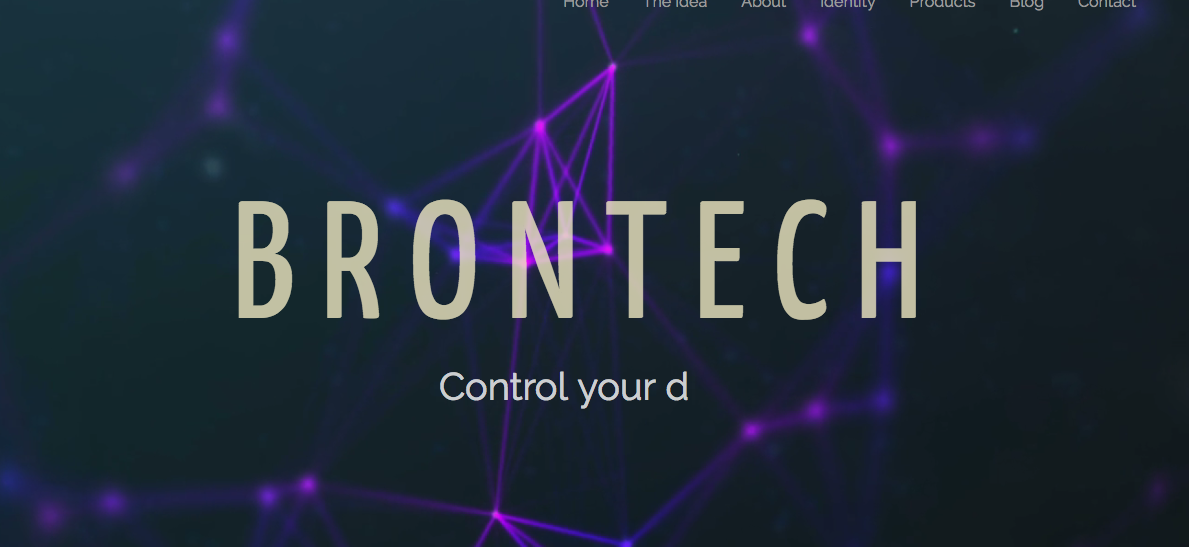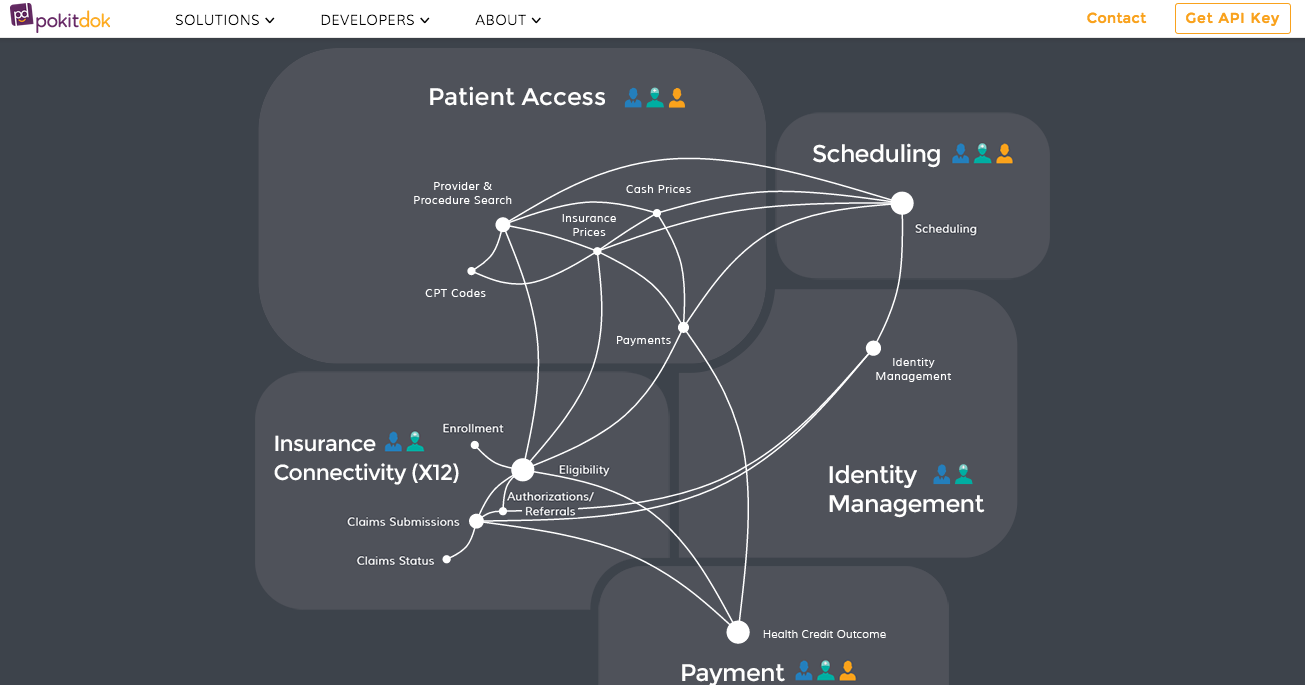
In the early days of blockchain, many startups focused on its most famous application, Bitcoin. But in the last few years, the technology developed and new applications emerged. Startups began innovating in healthcare, a sector that is in desperate need for change. From drug traceability, to medical records, many companies aim to use the blockchain technology to bring healthcare into a new era.
Gem
Gem is a blockchain application platform for enterprises. In July 2016, Gem launched Gem Health, a blockchain network for the medical and pharmaceutical community. « We need a modern infrastructure that unlocks new channels for services to connect, while balancing the need for strong data privacy and security. Blockchain technology is that infrastructure. » explained senior engineer, Julian Vergel de Dios.
This is how Gem sees healthcare:

Gem Health’s first partner is none other than Philips Blockchain Lab, a research centre on blockchain of healthcare giant Philips. The two are currently exploring the uses of blockchain technology in clinical trials, pharmaceutical supply chain, genomic data management and universal health identities among others.
Guardtime
Guardtime signed a deal with the Estonian e-Health Authority to secure the country’s health records using blockchain technology. The startup created a network that can be used by patients, providers, private companies or the government to access information in a safe way.
“Every update to healthcare records and every access to healthcare records is registered in the blockchain. That makes it impossible for the government or doctors or anyone to cover up any changes to healthcare records and that’s really powerful » says Guardtime CEO, Mike Gault.
Brontech
The Australian platform Brontech launched Cyph MD, a healthcare platform using blockchain. As it is explained on their website, « access to data across entities and platforms is crucial for the healthcare practice as it unequivocally influences the accuracy of the diagnosis and the potential for clinical errors. ». « It is still common to see hospital hallways packed with patients filling out forms, medical staff trying to figure out a patient’s accurate medical history, doctors using insecure channels like a telephone to acquire data and a patient’s consent is still taken for granted. », added Emma Poposka, Brontech CEO. Cyph MD’s goal is to improve and facilitate data sharing using smart contracts on the Ethereum blockchain.

MedRec
MedRec is a platform that helps manage medical records using Ethereum blockchain. It was created by MIT graduates with the goal to give patients the control over their health data. «Our MedRec prototype enables patients with one-stop-shop access to their medical history across multiple providers: smart contracts on an Ethereum blockchain aggregate data pointers (references to medical records that are stored elsewhere) into patient-provider relationships. », explains the team in the « MedRec: Medical Data Management on the Blockchain » whitepaper.
PokitDok
PokitDok’s mission is to enable the patient experiences, business models and security healthcare deserves through fluid data and modern software ». The startup was born after CEO Lisa Maki struggled for 6 months to find a treatment for her spinal injury. Her experience revealed the lack or communication among the medical community and the inefficiency of the healthcare system. PokitDok offers 5 types of solutions: clearinghouse (X12), private label marketplace, scheduling, identity management and payment optimization.

Blockchain Health Co.
Blockchain Health Co. is a startup based in San Francisco, California. They use blockchain technology to revolutionize the relationship between medical researchers and users. Indeed, through their platform, users can share their medical data while maintaining control. « Every identity, consent and custody transaction is anchored in the blockchain, assuring that the chain of custody of sensitive health data is easily auditable ».
Factom
Factom, the blockchain-based platform, signed a deal with HealthNautica, the US health data software provider. « The deal will see HealthNautica documents, which range from medical bills and client-physician communications to claims and disputes, imprinted on the blockchain, helping add security and guarantee authenticity of sequence of events. » reports CoinTelegraph. “The next step is educating insurance companies in using the blockchain for their record keeping, so that all parties involved are able to easily verify the accuracy of the claims and further increase efficiency in medical billing processes, while still protecting client confidentiality,” added Andrew Yashchuk board member at HealthNautica.
Stratumn
Stratumn’s goal is to « secure processes between partners through blockchain technology ». Recently, the French startup started investigating the use of blockchain technology in clinical trials, to prevent data falsification. “A study last year of 137 trials found 60 reported on outcomes they were not looking for, according to their original protocol. The COMPare project, which monitors clinical trials, found only nine out of 67 studies it has so far looked at had reported their results properly.” revealed The Economist. Transparency and trust in clinical trials is a major issue in the pharmaceutical industry but Stratumn might be able to fight.
Tierion
Tierion turns the blockchain into a global platform for verifying any data, file, or business process. We see a future where the blockchain is used to verify everything from medical records to online purchases. ». The startup partnered with Philips Healthcare to work on the possible applications of blockchain technology to improve the healthcare industry.
Blockpharma
The French startup uses blockchain-based technologies to help fight drug counterfeiting. The use of blockchain improves the drug traceability, allows the participants in the supply chain to interact easily and alerts the labs if fake drugs are detected. “If we could get that data and prove that documents have not been tampered with, we could say the drug actually came from the factory that we say it came from,” says Primrose Mbanefo, from Accenture.
The vast majority of these startups are still exploring and testing the use of blockchain in the healthcare industry. For now, there are very few concrete applications mainly because the healthcare sector is very hard to modernize. The processes didn’t evolve much in the past 10 years despite the great advances in therapeutics. Big Pharmas are now looking for a way to improve their work and deliver treatments in a more effective way but the complexity of their organization makes it hard to implement such dramatic changes. Nevertheless, the healthcare system has to change and these startups will make sure it will.

My name is Anca Petre and I am a Pharm. D and Business double degree candidate at Université Paris-Saclay and INSEEC Business School in London and Paris. In my own work, I primarily focus on the crossroads between healthcare and digital technologies. I am currently working on a research about the possible applications of Blockchain in Healthcare and I contribute to Blockchain Age and Intelligent HQ.
I particularly enjoy working the sectors’s startup environment. I have previously worked at e-ssencials, a startup which develops digital solutions for patients with chronic diseases. I have also participated in three hackathons to help develop and further innovate the healthcare circuit.
I worked at Sanofi in the Biotechnologies Department where I successfully managed to reduce the production time by half for several products.
At university, I am the founder and president of the Speak Up ! Association which allows over 500 students to improve their public speaking skills.











